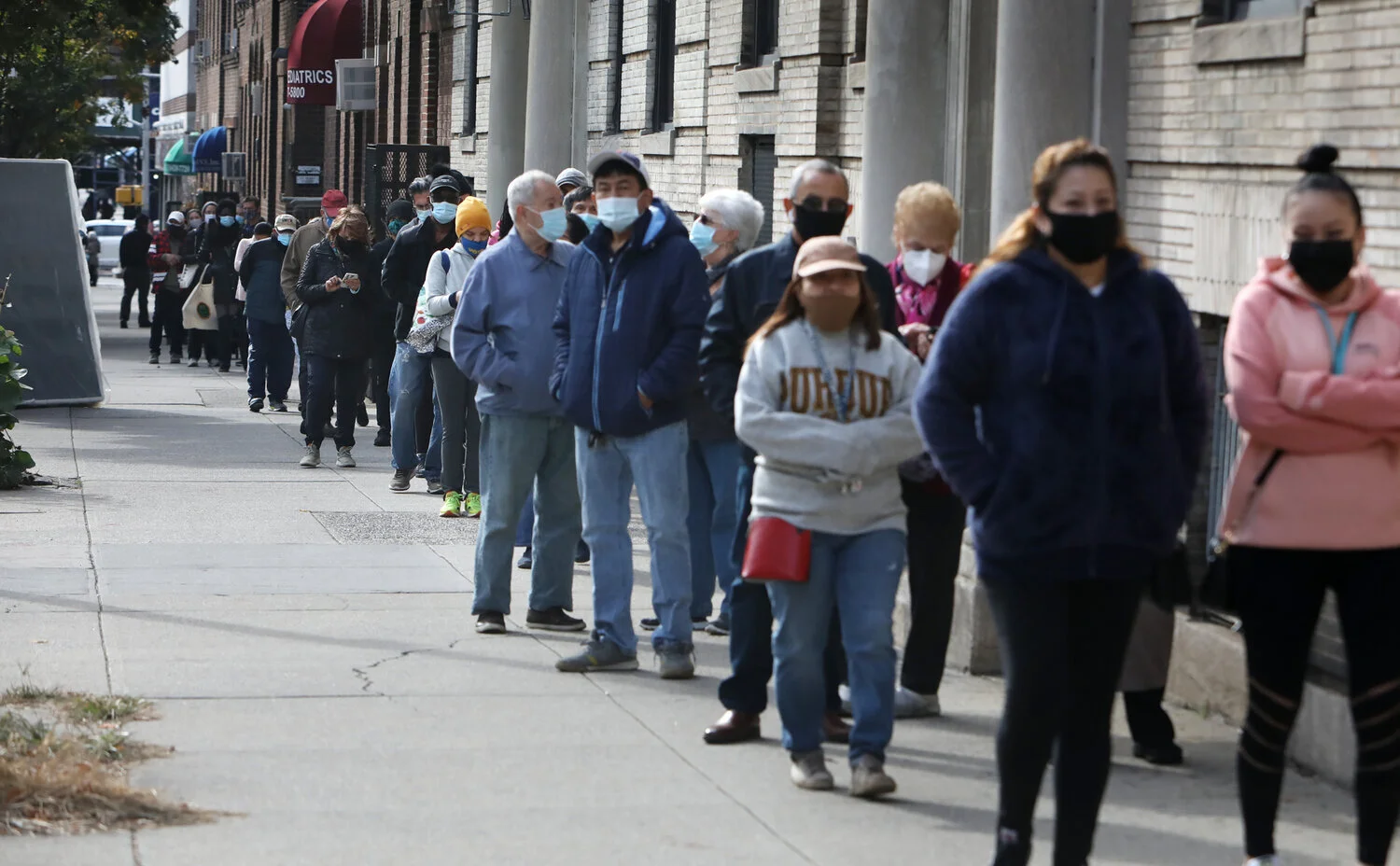Queens legislator aims to put ranked-choice voting back on ballot
/Councilmember I. Daneek Miller introduced legislation last week to repeal ranked-choice voting and put it back on the ballot in November. Eagle file photo by Christina Santucci
By Jacob Kaye
Queens City Councilmember I. Daneek Miller introduced legislation last week that would make it so New York City’s first large-scale test of ranked-choice voting this month would also potentially be its last.
On Thursday, Miller, who was previously part of a failed effort to sue the city over ranked-choice voting, was joined by Councilmembers Adrienne Adams, Laurie Cumbo and Kalman Yeger, in an attempt to repeal ranked-choice from the New York City Charter and put it up for election again in November.
“I’m not suggesting as a council that we would overturn the will of the people – even though I dismiss that this was a mandate,” Miller said. “This would leave it up to the people and also allow for enough time between June and November to have a robust public discourse [about RCV].”
Miller, who serves as the co-chair of the Black, Latino, and Asian Caucus in the council, said the effort to educate voters on RCV has been lacking. Having an uneducated electorate could lead to disenfranchisement, he argued.
“We were very much concerned about the timeliness of its implementation,” Miller said. “There's a lot to be concerned about [including] whether or not we’ve educated the consumer and the constituency to have the tools and resources to make intelligent decisions in utilizing this new method of voting.”
If passed, Miller’s legislation would not affect ranked-choice voting’s implementation during the June 22 primary elections. Instead, it would put the city’s use of the system back on the ballot during the November general election.
Ranked-choice voting, in which voters rank their top five choices for office, one through five, was passed as a ballot measure in 2019, receiving over 70 percent of the vote – though less than 10 percent of registered voters cast a ballot on the matter. The system is only to be used in primary elections for City Council, mayor, comptroller, public advocate and borough president.
In December 2020, Miller was joined by Adams and several other legislators in a lawsuit alleging the city was violating its duty to educate voters about RCV. Early last month, the lawsuit was dismissed in court when Appellate Judge Carol Edmead found the council members had failed to show the city hadn’t done their part to educate the public.
In February, Queens Council District 24 became the first in the city to utilize ranked-choice in a special election for City Council.
Council member James Gennaro, who also represented the district from 2002 to 2013, won over 50 percent of first-rank votes after the first round of counting was completed, negating the need for ranked-choice. However, a little more than a month later, the system was used again in the special election to fill Queens Borough Donovan Richards’ former seat in the council.
Council member Selvena Brooks-Powers, who was endorsed by the Queens Democratic Party and a host of Southeast Queens elected officials, came out on top after the 10 rounds of RCV counting were complete.
Following both elections, Common Cause/NY and Rank the Vote NYC surveyed voters who participated in ranked-choice voting and found that 95 percent of them found the ballot easy to fill out.
However, not nearly as many had heard about the system before heading to the polls.
Around 75 percent of voters said they were familiar with RCV prior to voting and around 13 percent said they had never heard of it, according to the survey.
Proponents of ranked-choice say the system evens the playing field between non-traditional candidates and established electeds, while also giving more of a voice to the voting public. By ranking five candidates instead of one, a voter’s ballot will theoretically last longer in the count.
A handful of candidates currently running for City Council rallied against Miller’s bill Friday, urging the City Council to keep the new voting measure in place.
“New Yorkers overwhelmingly voted in favor of ranked choice voting two years ago, hoping that it would lead to more civil and issue-based political campaigns,” said Julie Won, a City Council candidate in District 26. “For the City Council to consider repealing RCV so soon amounts to an abdication of their duty to carry out the will of their voters. To make our local elections fair, accessible, and more democratic, we must uphold ranked choice voting and fight for further electoral reform.”
Ingrid Gomez, a candidate in District 21, said the bill was an affront on voters’ choice in 2019.
“The bill to repeal ranked-choice voting is not just anti-democratic, it's the definition of voter suppression,” Gomez said. “RCV was passed by an overwhelming majority of NYC voters, and I will not let the shadowy politicians who sponsored this bill to subvert the will of the people.”




